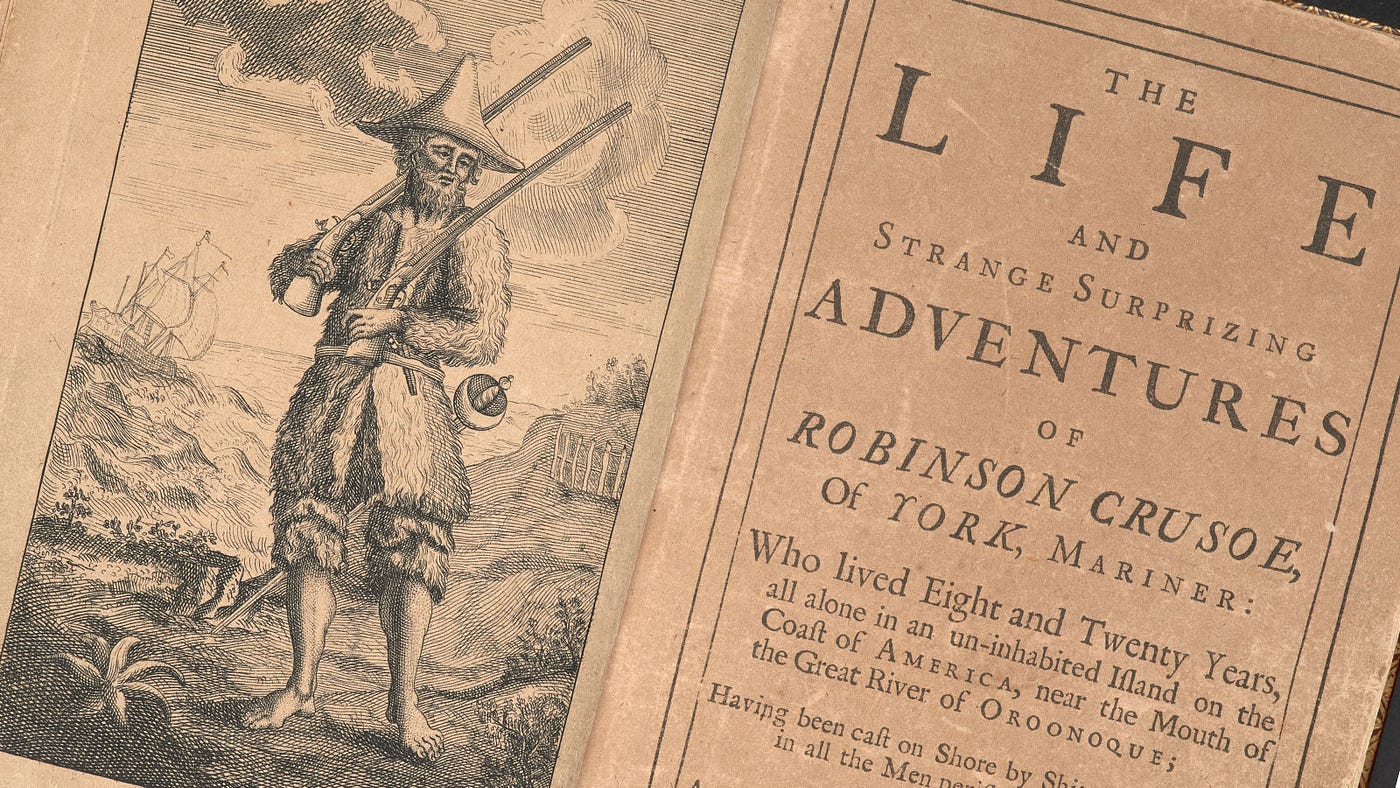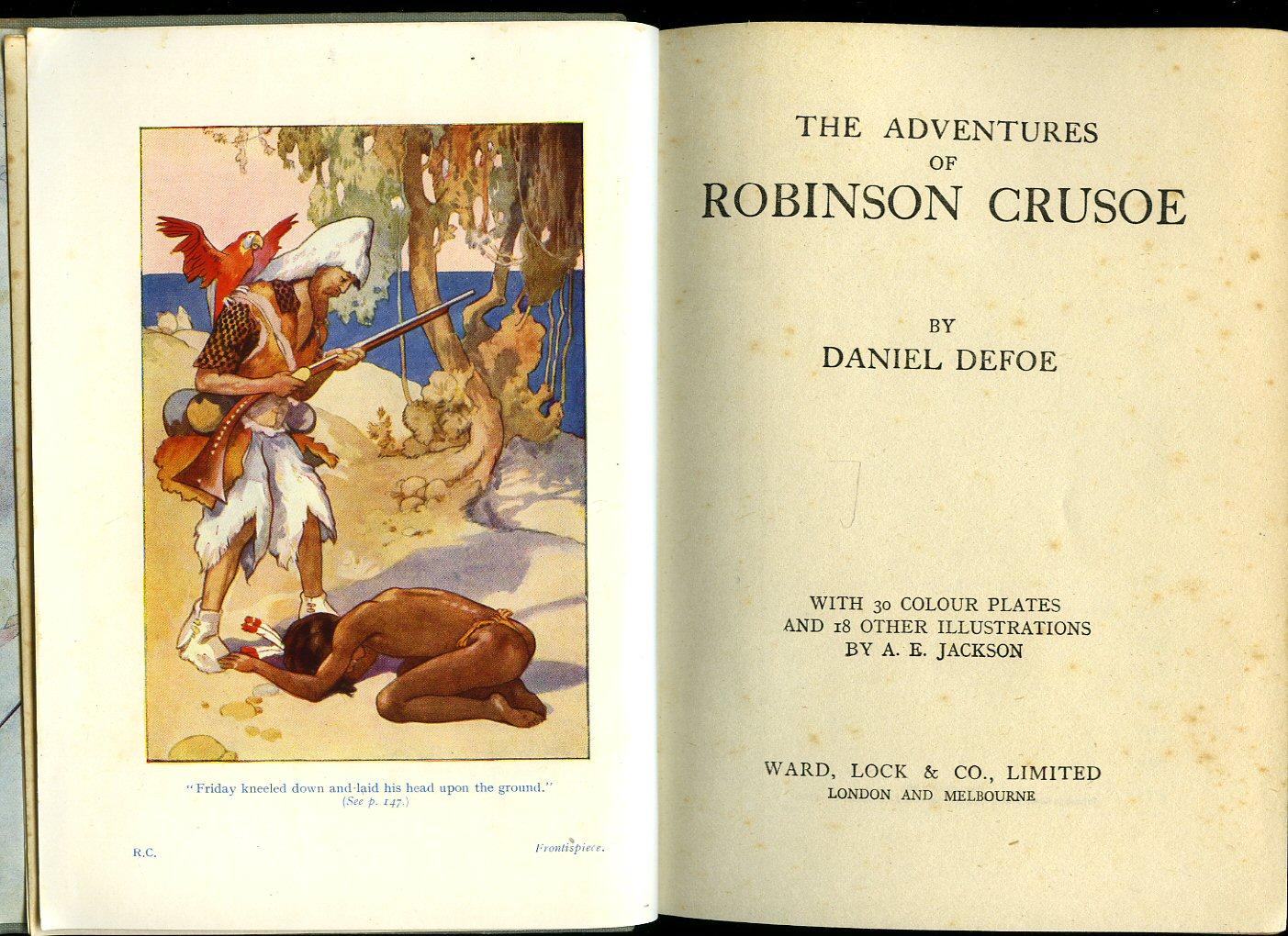Who wrote robinson crusoe crossword clue – The enigmatic novel Robinson Crusoe has captivated readers for centuries, but the question of its authorship has remained shrouded in mystery. Enter Daniel Defoe, a literary enigma whose life and work intertwine to reveal the true identity behind this timeless tale.
Defoe’s penmanship, marked by its vivid imagery and compelling narratives, has left an enduring legacy in the annals of English literature. His masterpiece, Robinson Crusoe, stands as a testament to his literary prowess, exploring themes of isolation, resilience, and the human spirit.
Author Identification
Daniel Defoe, the mastermind behind the timeless literary classic “Robinson Crusoe,” was an English writer, journalist, and merchant. Born in London in 1660, Defoe’s early life was marked by religious persecution and financial struggles.
In a realm of intrigue and suspense, where justice prevailed, a coup d’etat was judicially suspended, thwarting the machinations of those who sought to seize power unlawfully. Meanwhile, amidst the tranquil streams and whispering reeds, a crossword puzzle enthusiast sought the elusive answer to “fly fishing need,” a testament to the enduring allure of the angler’s art.
As the vinyl crackled on an old record player , its hypnotic melodies transported listeners to a bygone era, evoking memories and inspiring nostalgia.
Defoe’s literary career took flight in the early 18th century, with the publication of his political satire “The Shortest Way with Dissenters” (1702). This work brought him both fame and notoriety, landing him in prison for seditious libel.
Notable Works
Defoe’s literary repertoire extends beyond “Robinson Crusoe.” He penned numerous influential works, including:
- “Moll Flanders” (1722): A gripping tale of a prostitute’s journey through life.
- “A Journal of the Plague Year” (1722): A vivid and haunting account of the Great Plague of London.
- “Roxana” (1724): A complex and controversial novel exploring the life of a courtesan.
Historical Context
Daniel Defoe’s Robinson Crusoe, first published in 1719, emerged during a period of profound social and economic transformations in England.
The early 18th century witnessed the rise of capitalism, the growth of trade and exploration, and the expansion of the British Empire. These developments fueled a widespread fascination with adventure, exploration, and the quest for individual wealth and status.
Amidst the tranquil serenity of a flowing river, the art of fly fishing weaves a web of patience and precision. With each cast, the angler becomes a master of their craft, patiently awaiting the moment when a sleek fish rises to the surface, eager to claim the bait.
It is a dance of skill and nature, where the gentle tug of a line brings forth a symphony of emotions.
Personal Experiences
Defoe’s own life experiences significantly influenced the novel’s narrative. As a young man, he embarked on several trading voyages, including a disastrous expedition to the Caribbean that left him shipwrecked on a desolate island for a time. These experiences provided him with firsthand knowledge of the challenges and hardships faced by sailors and castaways.
Contemporary Events
The novel also reflects the political and religious tensions of the time. Defoe was a staunch supporter of the Protestant cause and a critic of the Catholic monarchy. The novel’s depiction of Crusoe’s struggle for survival on a remote island can be seen as an allegory for the Protestant struggle against religious persecution.
Novel Synopsis: Who Wrote Robinson Crusoe Crossword Clue
In the timeless tale of Robinson Crusoe, we embark on an extraordinary journey of survival, resilience, and the indomitable spirit of humanity. After a harrowing shipwreck that strands him on a desolate island, the protagonist, Robinson Crusoe, must confront the challenges of solitude, hunger, and the relentless forces of nature.
In the annals of history, where power struggles have often stained the pages with violence, a unique event unfolded when a coup d’etat was judicially suspended, a testament to the enduring power of law. Like an old record player spinning tales of bygone eras, this tale echoes through time, reminding us of the delicate balance between authority and justice.
Themes and Motifs
Robinson Crusoe is a literary masterpiece that delves into profound themes of isolation, self-reliance, and the power of faith. Through Crusoe’s struggles and triumphs, the novel explores the transformative nature of solitude, the importance of resourcefulness, and the unwavering belief in a higher power.
Literary Significance
Robinson Crusoe is a pioneering work of English fiction, widely regarded as one of the first and most influential novels in the language. Published in 1719, it established a template for adventure and survival stories that would shape literary history.
Impact on Subsequent Adventure and Survival Stories
The novel’s thrilling narrative and relatable protagonist resonated deeply with readers, inspiring countless imitations and adaptations. It introduced the concept of a solitary individual triumphing over adversity in an untamed wilderness, a theme that became a staple of adventure fiction.Robinson
Crusoe’s enduring popularity stems from its timeless themes of isolation, resilience, and the human spirit’s ability to adapt and overcome challenges. Its exploration of self-reliance and resourcefulness has left an indelible mark on subsequent adventure and survival stories, from Daniel Defoe’s own later works to the present day.
Cultural Impact
Robinson Crusoehas had a profound cultural impact, influencing countless works of literature, art, and film. Its enduring legacy continues to resonate in contemporary society.
Popular Culture
The novel’s popularity has spawned numerous adaptations, including movies, television shows, and video games. Its iconic characters and themes have become ingrained in popular culture, with Robinson Crusoe representing resilience, self-reliance, and the human spirit’s ability to triumph over adversity.
Art and Film, Who wrote robinson crusoe crossword clue
Robinson Crusoe’s influence is evident in various art forms. Painters like J.M.W. Turner and Winslow Homer depicted scenes from the novel, capturing its themes of isolation and survival. Filmmakers have also drawn inspiration from the story, with notable adaptations including Luis Buñuel’s Robinson Crusoe(1954) and Robert Zemeckis’s Cast Away(2000).
Enduring Legacy
The novel’s enduring legacy lies in its universal themes. Robinson Crusoe’s journey of survival, introspection, and spiritual growth resonates with readers of all ages. Its exploration of human nature, the importance of community, and the power of hope continues to inspire and challenge contemporary readers.
Final Summary
The legacy of Robinson Crusoe extends far beyond the pages of the novel. Its themes and characters have permeated popular culture, inspiring countless adaptations and retellings. Defoe’s masterpiece remains a timeless exploration of the human condition, reminding us of our capacity for survival, ingenuity, and hope.
Quick FAQs
Who is the author of Robinson Crusoe?
Daniel Defoe
When was Robinson Crusoe published?
1719
What is the main theme of Robinson Crusoe?
Isolation, resilience, and the power of faith
What is the significance of Robinson Crusoe in English literature?
It is considered a pioneering work of English fiction and has had a profound influence on subsequent adventure and survival stories.



